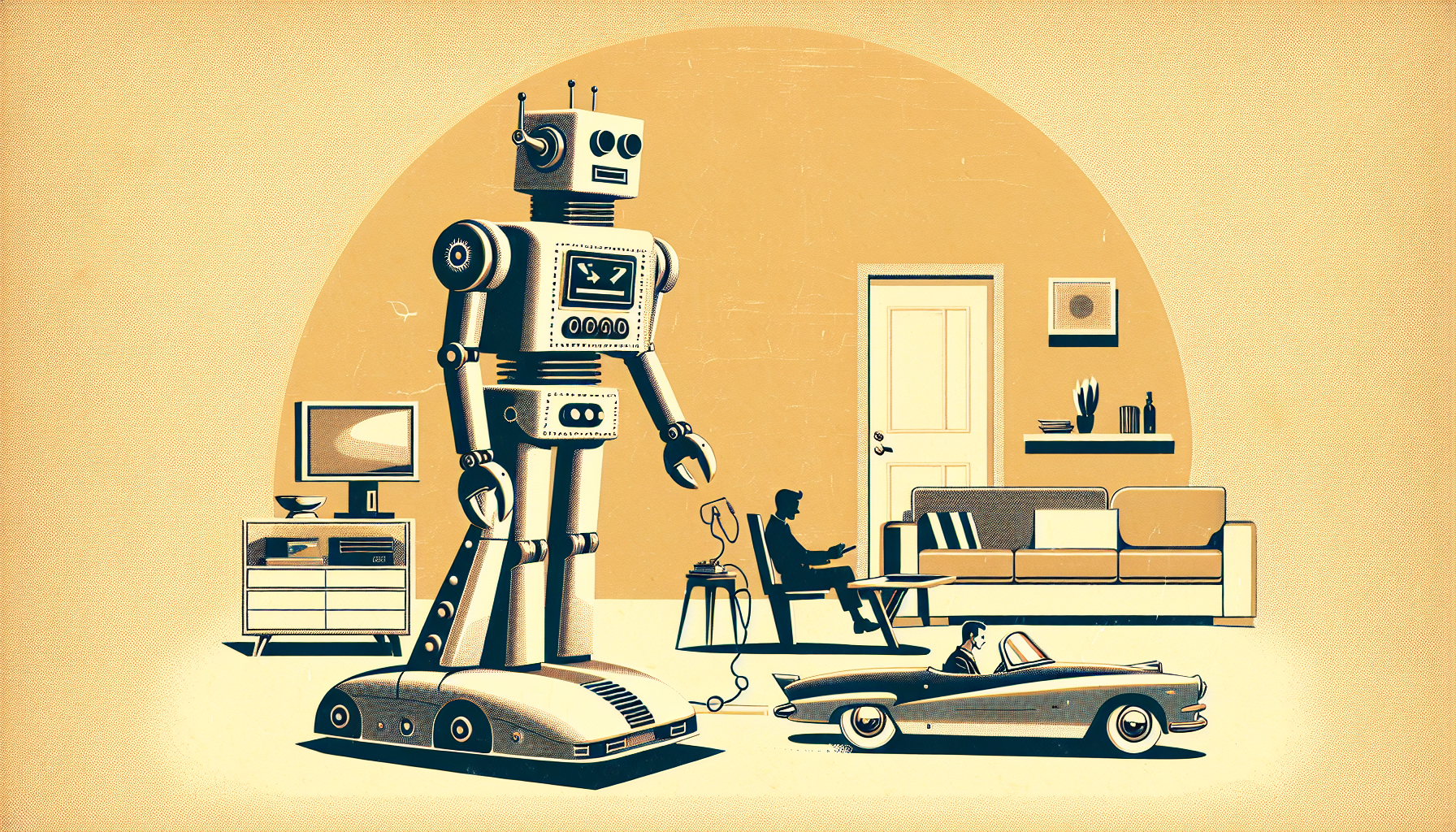These days, we routinely ask our machines to drive us home, choose our next movie, and, occasionally, identify which fuzzy blob in a medical scan signals trouble. As artificial intelligence grows smarter, more autonomous, and more entrenched in our daily lives, a peculiar and pressing question emerges: if a machine causes harm, who should we blame? Can machines… have moral responsibility?
Let’s imagine for a moment that your self-driving car decides to take a spontaneous detour through your neighbor’s prized rose garden. As the roses lay decimated, you have to wonder: Should the car—the actual hunk of metal, sensors, and code—be held responsible for its floral crime? Or is it someone else’s fault entirely?
The Nature of Moral Responsibility
Before we handcuff the nearest robot, it helps to revisit what “moral responsibility” actually means. For humans, being morally responsible is tied to several factors: understanding right from wrong, intending to act, and being able to act otherwise. We frown on blaming people for accidents or things they genuinely could not control.
For centuries, philosophers have argued that true responsibility depends on agency and consciousness. In other words: you must be aware of your actions and able to choose them freely. If you knock over a vase during an earthquake, nobody blames you. If you knock it over to make a point during dinner, well… cue the stares.
Machines and Choice: Illusion or Reality?
Now, let’s look at our AI pals. At first glance, advanced AI systems seem to make decisions. They weigh options, make predictions, and act in the world.
However, a crucial difference remains: machines don’t possess consciousness. No Siri or ChatGPT is sitting quietly pondering the ethical dilemmas of robothood. AI systems operate based on algorithms, rules, and data, all set in motion by humans. Their choices—even the most sophisticated ones—are the result of patterns and probabilities, not intent.
But, as AI grows more complex, another problem sneaks in. It can become so difficult to trace how a decision was made (a phenomenon ominously called the “black box” problem) that it sometimes seems like the machine is acting independently. And, if we can’t understand or predict when things go wrong, are we then justified in shifting blame to the AI?
The Temptation to Blame the Machine
It’s understandable to feel drawn toward blaming machines themselves, especially when there is real harm. When the supermarket’s self-checkout machine accuses you of shoplifting (again), you might find yourself grumping at the machine, as if it really should apologize. This reaction comes from our very human tendency to see intent behind actions—even the actions of objects.
But even the most advanced AI systems do not have beliefs, desires, goals, or even a vague sense that anything is happening at all. Blaming them, in a moral sense, makes about as much sense as blaming your toaster for burning the bread. (Though, in the heat of the moment, we’ve all been tempted.)
Who, Then, Is Morally Accountable?
If machines themselves lack the core traits required for moral responsibility, we are left with the humans in the loop. But which humans?
- The designers: Those who write the algorithms and set the goals for the AI.
- The deployers: The companies and organizations that choose to set AI loose in the world, often with profit in mind.
- The users: People who operate or interact with the AI systems.
Each of these groups, depending on the context, might bear some share of responsibility. The designers who bake bias into a hiring algorithm; the company that releases self-driving cars before the tech is safe; even the user who overrides a safety prompt. Responsibility is like a hot potato, only more ethically loaded.
The Limits of Human Responsibility
As machines take on jobs that are more complicated, distributed, and unpredictable, things get murkier. Sometimes, no single human can fully grasp or control what their creation is doing. The old idea of holding one specific person responsible starts to look inadequate in the age of collaborative, learning systems.
This is where legal and ethical frameworks matter. Instead of pretending AI agents are moral beings, we construct rules and systems for accountability. For example, a company deploying an AI in medicine must ensure proper oversight, transparency, and updates—because the AI cannot wrestle with what’s right or wrong, but the humans can.
The Analogy Trap: Beware the Human Mirror
One of the oldest tricks in philosophy is the analogy: comparing one thing to something known. When it comes to AI, we’re often tempted to anthropomorphize—to treat machines as having minds and motives like ours. That can be useful, as long as we remember the limits.
AI may best a human at chess, diagnose diseases, or compose convincing poetry, but it’s not having a moral experience. Assigning machines moral agency doesn’t just generate confusion; it lets the actual humans off the hook.
Looking Ahead: Responsibility in an AI-Driven World
So, can machines have moral responsibility? Given what we know, no—they lack consciousness, intent, and moral understanding. But as we increasingly rely on AI, our attention must stay fixed on ensuring human beings stay accountable, even as our creations get smarter.
If we fail to do so, we risk a future where responsibility becomes too diffuse to matter. That’s the real danger—not the robot revolution, but a slow erosion of accountability.
So, next time your home assistant orders 200 cans of soup, don’t scold the machine. Instead, ask: who designed it, who decided to let it buy groceries, and what safeguards were (or weren’t) in place?
Machines will not care. But we must. If humanity is to flourish in the age of intelligent machines, then keeping moral responsibility firmly on the human side of the equation is not just wise—it’s necessary. And perhaps, after all, it’s the grown-up thing to do.

Leave a Reply